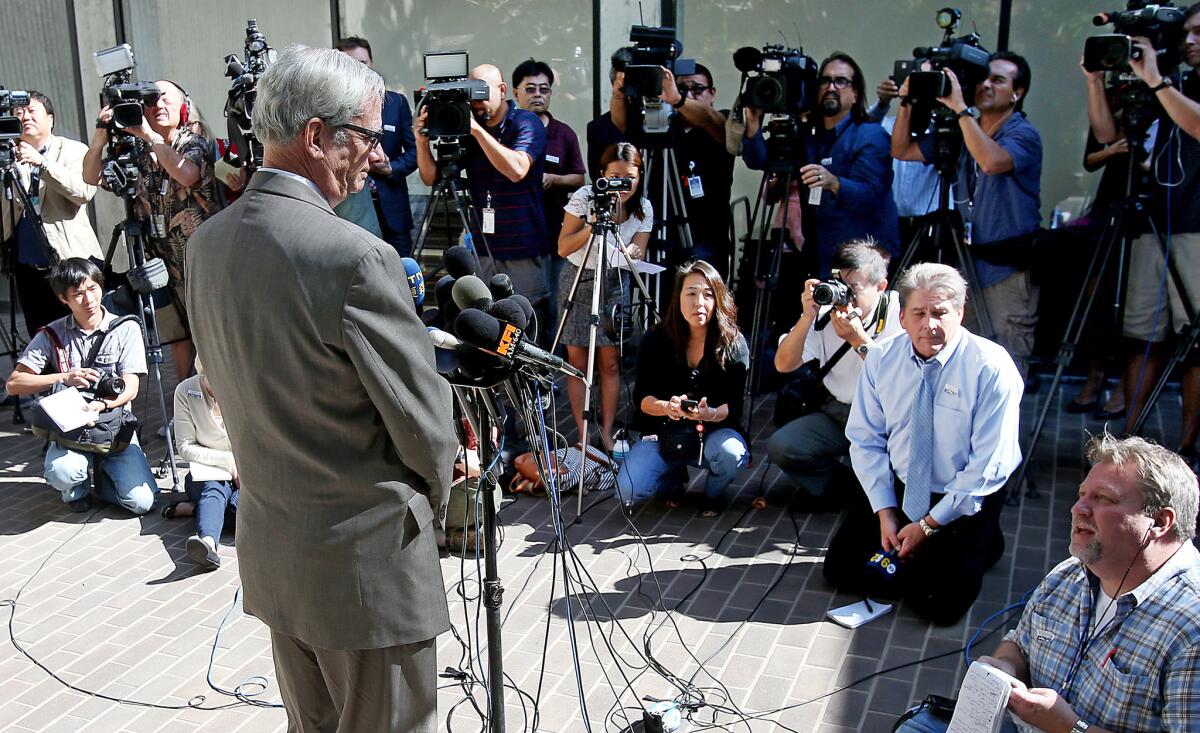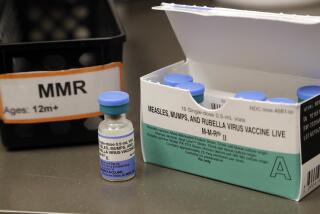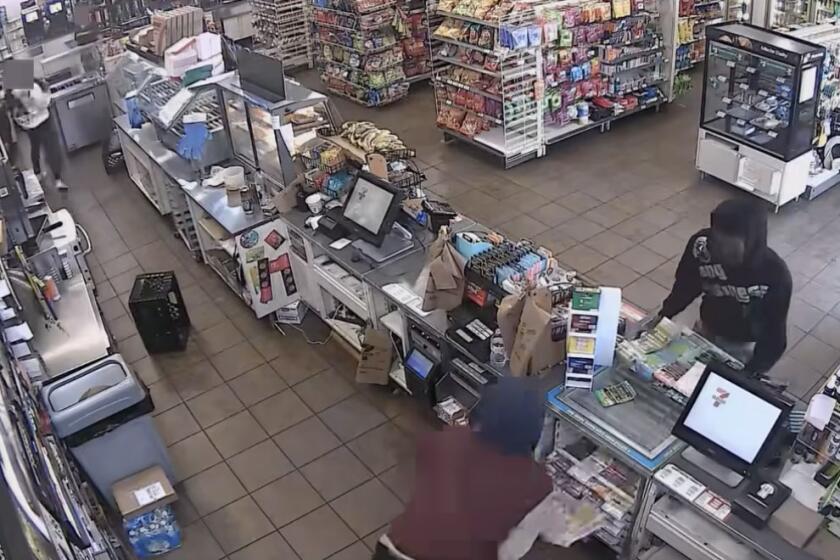Amid latest U.S. Ebola infection, L.A. County says it’s prepared

On the same day the U.S. awoke to reports of a second nurse in Texas testing positive for Ebola, public health officials Wednesday sought to reassure Los Angeles County residents that they were prepared to face the deadly virus should it arrive in the region.
“We’re prepared today, were more prepared than yesterday, and we’ll be more prepared tomorrow than we are today,” said Dr. Robert Kim-Farley, director of the communicable disease control and prevention division of the county’s Department of Public Health.
The first Ebola death in the U.S. -- that of Thomas Eric Duncan, who died in the Dallas hospital that initially misdiagnosed him and sent him away -- put a spotlight on the ability of local health facilities to handle Ebola. But with two nurses who had contact with Duncan now testing positive for the virus, concern has only grown.
There have been several patients treated at L.A. County hospitals who have been treated as possible Ebola infections, but all have been found not to have the disease.
The latest scare came Sunday, when a United Airlines flight that landed at Los Angeles International Airport was diverted for several hours to a remote gate after a passenger exhibited “flu-like symptoms” associated with Ebola. It was later determined that the woman was not at risk for the deadly virus but instead suffered from motion sickness.
Local officials, meanwhile, say they are working to get medical providers ready should an Ebola case emerge in Southern California.
Public health authorities in Los Angeles County are rolling out Ebola guidelines based on recommendations from the U.S. Centers for Disease Control and Prevention, which call for providers to don protective gear — goggles, gloves, masks and gowns — when working with a suspected Ebola patient; to isolate suspected Ebola cases in a room with its own bathroom; and — perhaps most key — to immediately ask patients with symptoms such as vomiting, nausea and fever if they have traveled to West Africa or been in contact with someone who has.
On Wednesday, Kim-Farley said that the county had instructed hospitals and other healthcare providers and facilities on the front lines -- from EMS workers to urgent care centers to doctors’ offices -- to call his department immediately when confronted with a possible Ebola case.
A public health doctor will be on call 24 hours a day to help medical providers manage patients once they’ve been isolated, he said, adding that his department was also working with emergency responders and the coroner’s office to make sure workers fully understand procedures.
“We have trainings on the ground now,” Kim-Farley said.
Follow the reporter on Twitter for health-related news: @LATerynbrown
More to Read
Start your day right
Sign up for Essential California for news, features and recommendations from the L.A. Times and beyond in your inbox six days a week.
You may occasionally receive promotional content from the Los Angeles Times.







